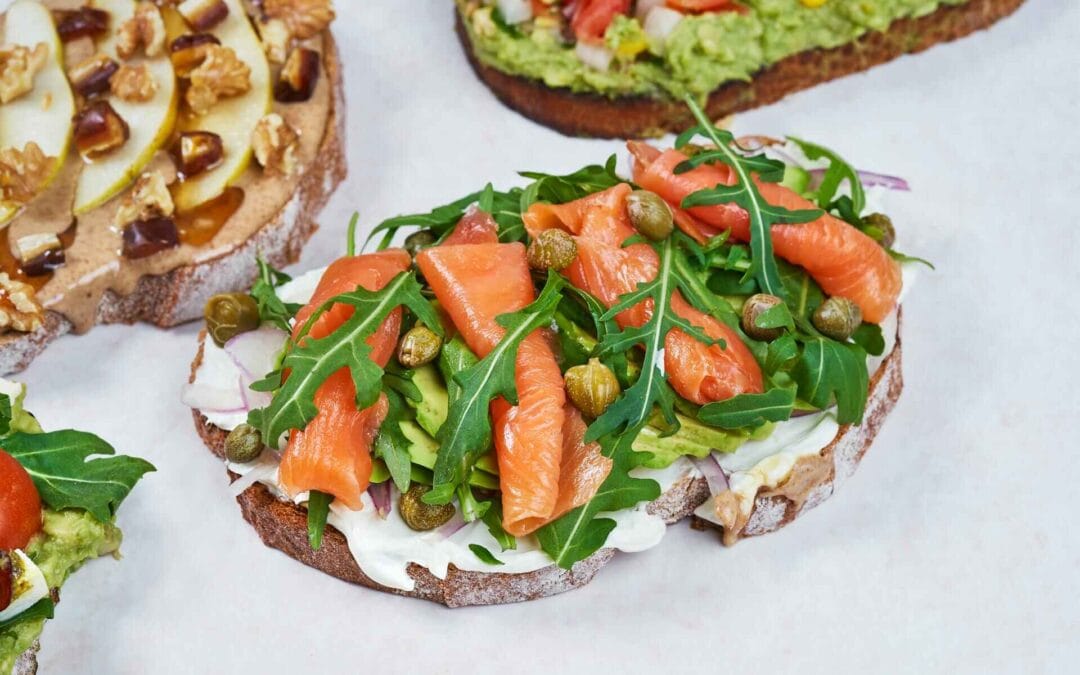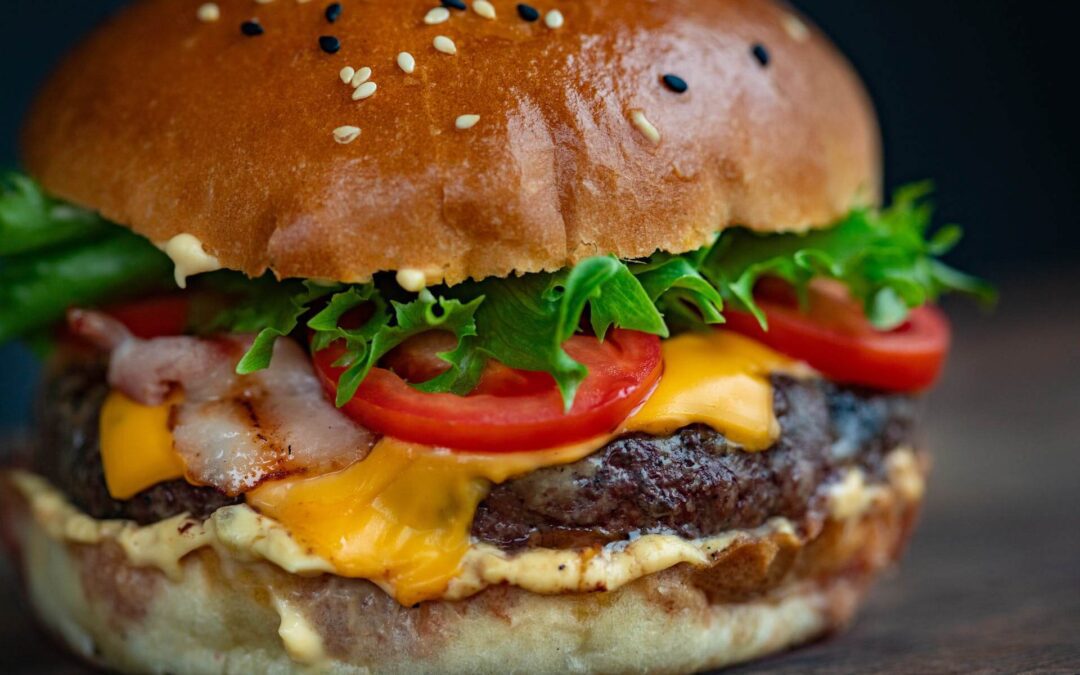My desire to become a registered dietitian nutritionist (RDN) was motivated by a lifetime battle with my weight.
I’m not exaggerating when I say “lifelong,” since I weighed more than 10 pounds (4.5 kg) when I was born, putting me in the 99th percentile.
The ketogenic, or keto, diet is a low-carb, high-fat eating pattern that entails restricting your carb consumption to 25–50 grams per day or less to achieve ketosis — a metabolic state in which your body uses fat for fuel rather than carbohydrates. (1)
It’s also the only diet that’s enabled me to effectively reduce and maintain weight while still feeling full and content.
I hate to use the phrase diet since I consider keto to be a way of life rather than a short or fashionable method of eating.
Sure, there are periods when I consume more carbohydrates — for example, during my recent pregnancy and now that I’m nursing — but I’m not obsessive about it.
However, keto is the baseline I always return to since it helps me feel the best.
While the keto diet has been used to treat pediatric epilepsy for many years, we are just now beginning to understand how it may be suitable for blood sugar control and weight reduction.
This post outlines why I believe the keto diet is the most excellent and most successful choice for my weight reduction quest, and a look at what I consume daily.
Why keto?
The first time I tried keto, it was merely to check whether it lived up to the hype.
I was bigger than I wanted to be at the time, and I felt guilt and cognitive dissonance about being an overweight dietician.
I have also tried other methods to lose weight — or at least not gain weight — with little result. Consequently, despite my discipline in other parts of my life, I believed I was simply a weak-willed person.
However, I now see that my issues with hunger and food cravings were not the result of a personality flaw. Instead, they were the result of eating foods that were harming my gut health, blood sugar levels, and hormone levels. (2, 3)
My experience with the keto diet
When I first tried keto in 2019, I dropped 30 pounds (14 kg) in four months, and it was shockingly simple since I wasn’t constantly obsessed with what I was going to eat next. Instead, I was finally content, both physically and emotionally.
In addition, I saw changes in other aspects of my health.
For example, a fellow RDN praised me for how beautiful my skin was – something I’d never received before.
My few bouts of moderate heartburn also subsided, and I felt enthusiastic, determined, and productive throughout the day.
Then came the year 2020.
For many of us, 2020 was a trying year.
I was pregnant, working a healthcare job during the day, writing at night, taking care of my family, and often worried about the political and social instability in the United States, so I was not just dealing with the stress of managing pandemic life.
When I was completely stressed, I turned to food for comfort and spent many nights stressed eating.
While 2020 demonstrated that I still had to work on my relationship with food, it also showed how much my quality of life had already improved on the keto diet.
I understand that keto isn’t the best option for everyone. However, I can’t deny that eating a low-carb, high-fat diet liberated me from my culinary aversions for the first time in my life.
The research behind the keto diet’s weight loss
According to research, there are four key reasons why the keto diet seems to be helpful for weight loss, which are as follows:
- Appetite suppression. A low-calorie keto diet has been demonstrated to aid in the reduction of hunger and the improvement of feelings of fullness. While further study is required, it is assumed that this decrease in appetite is due to favorable changes in hunger hormones and an enhanced capacity to burn fat for energy during ketosis. (4, 5)
- Insulin sensitivity has improved. The keto diet may help lower insulin levels and increase insulin sensitivity by limiting carbohydrate consumption. This is significant since insulin resistance is a crucial risk factor for various chronic illnesses such as obesity, type 2 diabetes, and polycystic ovarian syndrome (PCOS). (6, 7)
- You are maintaining your metabolic rate. Losing weight often causes a decrease in metabolic rate (the number of calories you burn at rest), making it harder to continue losing or maintaining weight. However, according to research, a low-calorie keto diet may not drop your metabolic rate as significantly since it preserves lean body mass. (8, 9)
- Use of body fat as a source of energy. The keto diet may also help you burn stored body fat more efficiently. During ketosis, the body burns fat for energy rather than carbohydrates, and this fat comes from either your food or your body’s fat storage. (10)
However, keep in mind that research on the keto diet for uses other than epilepsy has just begun in earnest in the last decade.
Consequently, additional research on the long-term effects of keto in the general population is required.
Furthermore, although keto may be beneficial for weight reduction and blood sugar control, it’s critical to consult with a trusted healthcare provider before making dietary changes, particularly if you have diabetes or are using prescription drugs.
What I consume daily
Do you want to know what the keto diet looks like to me?
On a typical day, I consume the following foods:
- Breakfast. I usually start my day with a cup of coffee since I’m not hungry when I wake up. Then, to ensure that I receive enough calories for nursing, I’ll eat a ready-to-drink protein shake with medium-chain triglyceride (MCT) oil or half an avocado later in the morning.
- Lunch. I’ll eat a salad and roast beef wrapped in strong cheddar cheese, unless tonight’s leftovers. My second favorite dish is eggs cooked in butter with a substantial portion of sautéed vegetables.
- Dinner. I like a meat and vegetable entrée, such as a salad, Brussels sprouts, cauliflower rice, or zucchini noodles. Everything is cooked with butter, olive oil, or avocado oil to ensure enough fat and calories.
- Snacks. I’ve been nibbling on nuts and cheese lately to keep my calories up for breastfeeding, but I don’t generally bite since I don’t feel hungry between meals.
- Sweets. I still like sweets and make space for them every evening. Local strawberries in season or a handful of sugar-free mint chocolate chips are two of my faves.
Another advantage of the keto diet is that it is simple to locate alternatives while eating out. For example, I usually order a salad, a bunless burger, or steak and vegetables, depending on the place.
While keto has poor notoriety for being all butter, bacon, and cheese, I’ve discovered that I eat more fresh fruit today than I ever have in my life.
The Bottom Line
I understand how difficult it is to be constantly hungry when attempting to lose weight, which is why I consider myself quite lucky to have discovered a diet that works for me.
I can honestly claim that keto has transformed my life and revived my interest in nutrition and health.
While there are several methods to live a healthy lifestyle, the keto diet is worth trying if you’re having difficulty finding a diet that works for you.
Simply consult with a trustworthy healthcare practitioner first, especially if you have a previous medical condition or use prescription drugs.







0 Comments